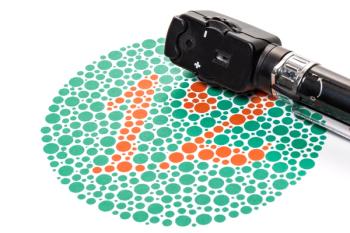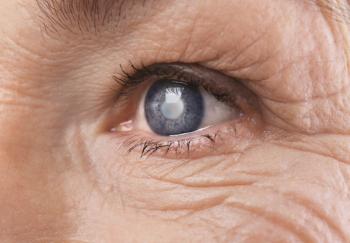
Corneal Implants Show Promise for Rare Condition
A bioengineered corneal implant made with collagen from pig’s skin could be an alternative to human transplants for those with keratoconus, a rare condition that can lead to blurry vision and blindness.
Researchers with the Sweden-based company LinkoCare Life Sciences and Linköping University have bioengineered a cell-free implantable medical device that could be a substitute for human corneal in patients with keratoconus, a rare condition that causes the cornea to bulge and leads to blurred vision and sensitivity to light. The condition occurs in about 1 in 2,000 individuals, but some estimates suggest that the incidence may be as high as 1 in 400 individuals, according to the National Organization for Rare Disorders.
In the early stages, keratoconus can be treated with glasses and contacts. In advanced stages, donor corneal transplants are needed to replace the damaged cornea. Researchers from Linköping University point out that there is a donor shortage of cornea in some areas, especially in Asia, Africa, and the Middle East. Many of these areas lack infrastructure for tissue donation.
The LinkoCare Life Sciences implant was made from collagen from pig’s skin, a purified byproduct from the food industry already used in FDA-approved medical devices for glaucoma surgery and as a wound dressing.
In a pilot feasibility study in India and Iran, researchers implanted the bioengineered cornea in 20 patients with advanced keratoconus to reshape the native corneal stroma without removing existing tissue or using sutures. In 14 patients who were initially blind, all patients had a final mean best-corrected vision (glasses or contact lens) of 20/36, and they were able to tolerate contact lenses, researchers wrote in a recent
“These represent equivalent outcomes to standard corneal transplantation but with a simpler surgical technique and without the need for human donor tissue or tissue banking infrastructure,” researchers wrote. They were led by Mehrdad Rafat, an adjunct associate professor at Linköping University department of biomedical engineering and founder and CEO of the company LinkoCare Life Sciences.
Previously, researchers had developed implants using human collagen, but they found several limitations. Implants with human collagen could be produced only in small quantities, implants were weak and required invasive suturing and were subject to melting.
The study had several limitations, researchers said. Sites lacked control patients who had received human donor corneas, so a direct comparison could not be made.
In this study, the corneal implants were manufactured in two thicknesses, but the implants can be manufactured for customized treatment, including non-uniform or tapered thickness for optimization of refraction and visual outcome.
Newsletter
Get the latest industry news, event updates, and more from Managed healthcare Executive.























